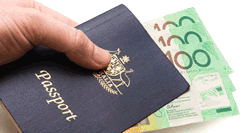Topics:
Sponsors:
- In-Person Event
Conference Call
Criminal Law Practice Group Teleforum
 The Foreign Corrupt Practices Act of 1977, as amended, 15 U.S.C. §§ 78dd-1, et seq. ("FCPA"), makes it unlawful for certain classes of persons and entities to make payments to foreign government officials to assist in obtaining or retaining business. Increasingly over the last 10 years, DOJ has made enforcement of the FCPA a priority, and prosecutions resulting in mammoth fines and settlements have increased substantially, as has the cost to companies of conducting investigations and implementing compliance. The use by prosecutors of aggressive interpretations of the FCPA to reach conduct by overseas subsidiaries and third parties and attribute it back to the US parent has become commonplace -- some of these theories, when tested by courts, have been struck down; others upheld. Should the US be seeking to ameliorate, or at least not worsen, corruption in other countries? Is the FCPA an appropriate tool toward this end? Has the FCPA succeeded in leveling the playing field for US companies competing in global markets, or only made it harder? Have prosecutors subjected the FCPA to abuse, stretching fundamental criminal law concepts of knowledge and intent beyond all bounds? Is reform an option?
The Foreign Corrupt Practices Act of 1977, as amended, 15 U.S.C. §§ 78dd-1, et seq. ("FCPA"), makes it unlawful for certain classes of persons and entities to make payments to foreign government officials to assist in obtaining or retaining business. Increasingly over the last 10 years, DOJ has made enforcement of the FCPA a priority, and prosecutions resulting in mammoth fines and settlements have increased substantially, as has the cost to companies of conducting investigations and implementing compliance. The use by prosecutors of aggressive interpretations of the FCPA to reach conduct by overseas subsidiaries and third parties and attribute it back to the US parent has become commonplace -- some of these theories, when tested by courts, have been struck down; others upheld. Should the US be seeking to ameliorate, or at least not worsen, corruption in other countries? Is the FCPA an appropriate tool toward this end? Has the FCPA succeeded in leveling the playing field for US companies competing in global markets, or only made it harder? Have prosecutors subjected the FCPA to abuse, stretching fundamental criminal law concepts of knowledge and intent beyond all bounds? Is reform an option?
Featuring:
 The Foreign Corrupt Practices Act of 1977, as amended, 15 U.S.C. §§ 78dd-1, et seq. ("FCPA"), makes it unlawful for certain classes of persons and entities to make payments to foreign government officials to assist in obtaining or retaining business. Increasingly over the last 10 years, DOJ has made enforcement of the FCPA a priority, and prosecutions resulting in mammoth fines and settlements have increased substantially, as has the cost to companies of conducting investigations and implementing compliance. The use by prosecutors of aggressive interpretations of the FCPA to reach conduct by overseas subsidiaries and third parties and attribute it back to the US parent has become commonplace -- some of these theories, when tested by courts, have been struck down; others upheld. Should the US be seeking to ameliorate, or at least not worsen, corruption in other countries? Is the FCPA an appropriate tool toward this end? Has the FCPA succeeded in leveling the playing field for US companies competing in global markets, or only made it harder? Have prosecutors subjected the FCPA to abuse, stretching fundamental criminal law concepts of knowledge and intent beyond all bounds? Is reform an option?
The Foreign Corrupt Practices Act of 1977, as amended, 15 U.S.C. §§ 78dd-1, et seq. ("FCPA"), makes it unlawful for certain classes of persons and entities to make payments to foreign government officials to assist in obtaining or retaining business. Increasingly over the last 10 years, DOJ has made enforcement of the FCPA a priority, and prosecutions resulting in mammoth fines and settlements have increased substantially, as has the cost to companies of conducting investigations and implementing compliance. The use by prosecutors of aggressive interpretations of the FCPA to reach conduct by overseas subsidiaries and third parties and attribute it back to the US parent has become commonplace -- some of these theories, when tested by courts, have been struck down; others upheld. Should the US be seeking to ameliorate, or at least not worsen, corruption in other countries? Is the FCPA an appropriate tool toward this end? Has the FCPA succeeded in leveling the playing field for US companies competing in global markets, or only made it harder? Have prosecutors subjected the FCPA to abuse, stretching fundamental criminal law concepts of knowledge and intent beyond all bounds? Is reform an option?
Featuring:
Call begins at 1:00 p.m. Eastern Time.
Teleforum calls are open to all dues paying members of the Federalist Society. To become a member, sign up here. As a member, you should receive email announcements of upcoming Teleforum calls which contain the conference call phone number. If you are not receiving those email announcements, please contact us at 202-822-8138.